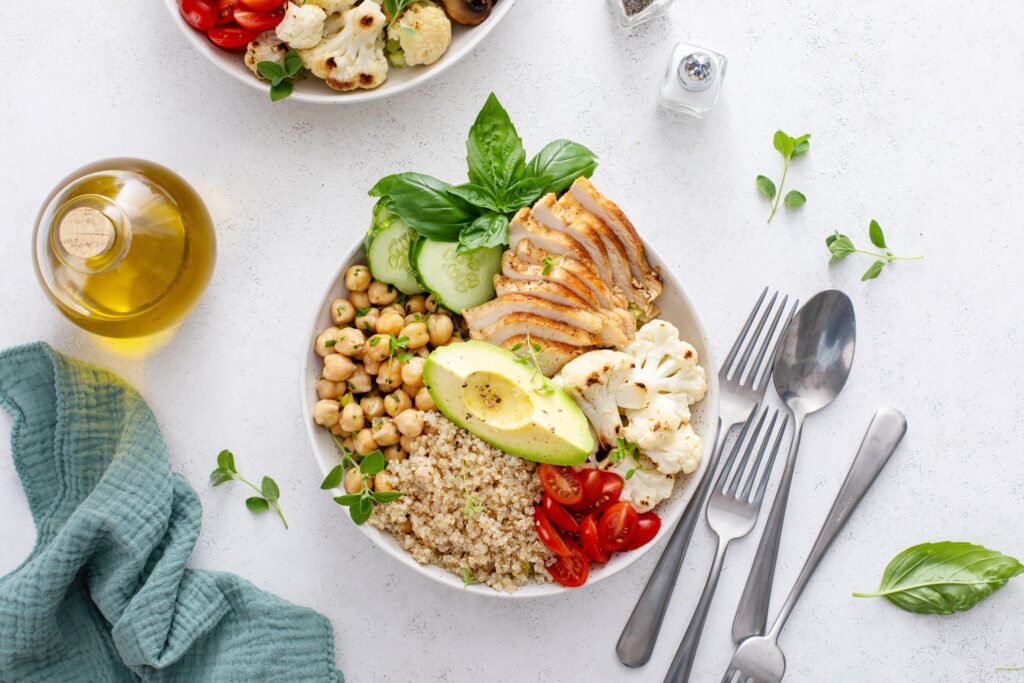Are you looking to improve your health while enjoying delicious, plant-based foods?
The high-protein vegan diet might be your perfect fit. Combining the benefits of veganism with a focus on protein-rich plant foods, this diet is gaining traction among those aiming to lose weight, build muscle, and enhance overall wellness.
Health Benefits of a High-Protein Vegan Diet
Effective Weight Management: Diets rich in plant-based proteins are not only nutritious but also help you feel fuller for longer. This feeling of satiety can lead to reduced calorie intake, assisting in weight management. Furthermore, a higher protein intake can boost thermogenesis and energy expenditure, facilitating more effective weight loss.
Supporting Muscle Mass and Strength: Getting enough protein is essential for muscle protein synthesis. Plant-based sources, when varied to include all essential amino acids, can effectively support muscle maintenance. This is particularly crucial for older adults who aim to preserve muscle mass and strength as they age.
Preventing Chronic Diseases:
Heart Health: Adopting a plant-based diet can lower cholesterol and blood pressure, significantly reducing heart disease risk.
Diabetes Management: This diet also helps improve glycemic control due to its high fiber content and low saturated fat intake, which are beneficial for managing and preventing type 2 diabetes.

How to Successfully Follow a High-Protein Vegan Diet
Choosing Diverse Protein Sources:
Legumes: Incorporate beans, lentils, and chickpeas, which are excellent protein sources.
Whole Grains: Opt for protein-rich grains like quinoa, buckwheat, and amaranth.
Nuts and Seeds: Snack on almonds, peanuts, pumpkin seeds, and hemp seeds for a protein boost.
Soy Products: Include tofu, tempeh, and edamame in your meals as complete sources of protein.
Seitan: Known for its meat-like texture, seitan is a gluten-based protein that serves as a fantastic meat substitute.
Ensuring Complete Amino Acid Intake:
Combine different plant-based proteins throughout the day—such as rice with beans or hummus with whole wheat pita—to ensure you’re getting a complete profile of essential amino acids.
Prioritize Whole Foods Over Processed Options:
Focus on whole, unprocessed foods to maximize nutrient intake and minimize additives, which can be detrimental to health.
Consider Necessary Supplements:
Vitamin B12: Crucial for vegans, as it is naturally lacking in plant-based diets.
Vitamin D and Omega-3s: These are important for overall health and may need supplementation, especially in climates with limited sunlight.
Monitor Your Nutritional Intake:
Use food tracking apps or consult with a dietitian to ensure you’re meeting your protein and other nutritional needs.
Plan and Prepare Your Meals:
Meal prep can help you maintain consistency in your diet, ensuring you consume a variety of protein sources and meet your dietary goals each day.
Adopting a high-protein vegan diet offers extensive health benefits, including effective weight management, enhanced muscle strength, and a reduced risk of chronic diseases. By carefully planning meals and focusing on a variety of nutrient-rich plant proteins, you can enjoy a balanced and satisfying diet. Embrace this lifestyle change to improve your health and well-being, ensuring you get all the essential nutrients your body needs. Start your journey toward a healthier, protein-rich vegan lifestyle today and witness the positive changes it brings.

